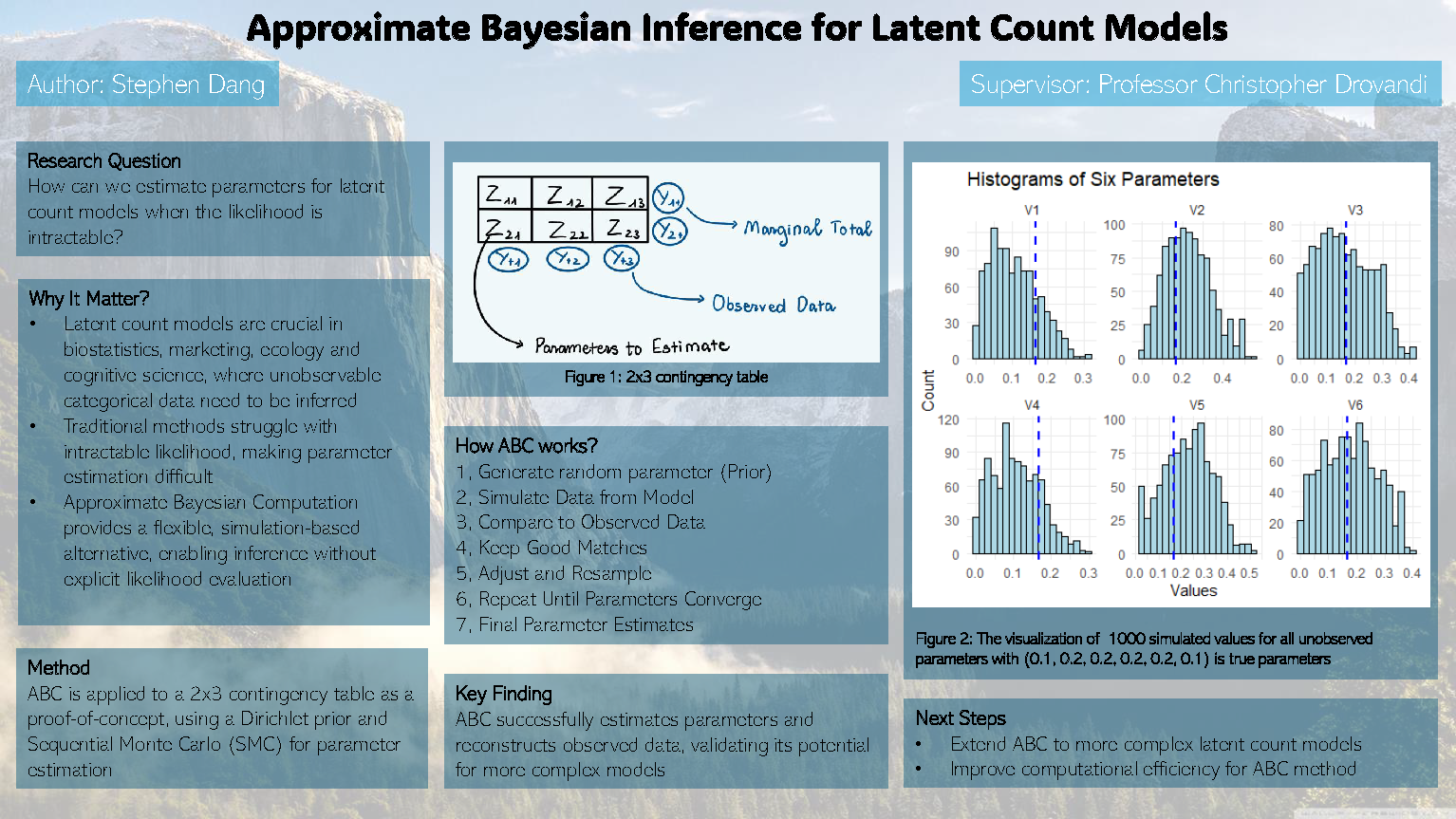Approximate Bayesian Inference for Latent Count Models
Stephen Dang
Supervisor: Prof Christopher Drovandi
Latent count models are widely used in various scientific fields to analyze unobservable categorical data, such as cognitive models and contingency tables. However, parameter estimation for these models presents significant challenges, since the likelihood function can be computationally intractable. This research explores the Approximate Bayesian Computation (ABC) method as a novel approach for parameter estimation in latent count models. ABC circumvents the need for explicit likelihood evaluation by simulating data and comparing it with observed data through a discrepancy measure, enabling parameter estimation in complex and constrained settings.
As a proof-of-concept, the study applies ABC to a 2×3 contingency table, a simplified latent count model, to demonstrate the feasibility of the method. The model’s parameters, represented as probabilities, are drawn from a Dirichlet prior, ensuring non-negativity and sum-to-one constraints. Using a Sequential Monte Carlo (SMC) ABC algorithm, the posterior distribution of parameters is approximated iteratively by refining a population of samples. A custom discrepancy function evaluates the alignment between simulated marginal totals and observed data, guiding the algorithm toward optimal parameter estimates. Preliminary results show that the ABC method accurately estimates parameters and reconstructs observed data, even under tight constraints. While the 2×3 table serves as an illustrative example, this work lays the foundation for extending the method to more complex latent count models in future research. By demonstrating the potential of ABC to address intractable likelihoods, this study highlights its promise as a robust and scalable framework for parameter estimation in categorical data analysis.
Media Attributions
- Approximate bayesian inference for latent count models © Stephen Dang is licensed under a CC BY-NC (Attribution NonCommercial) license


